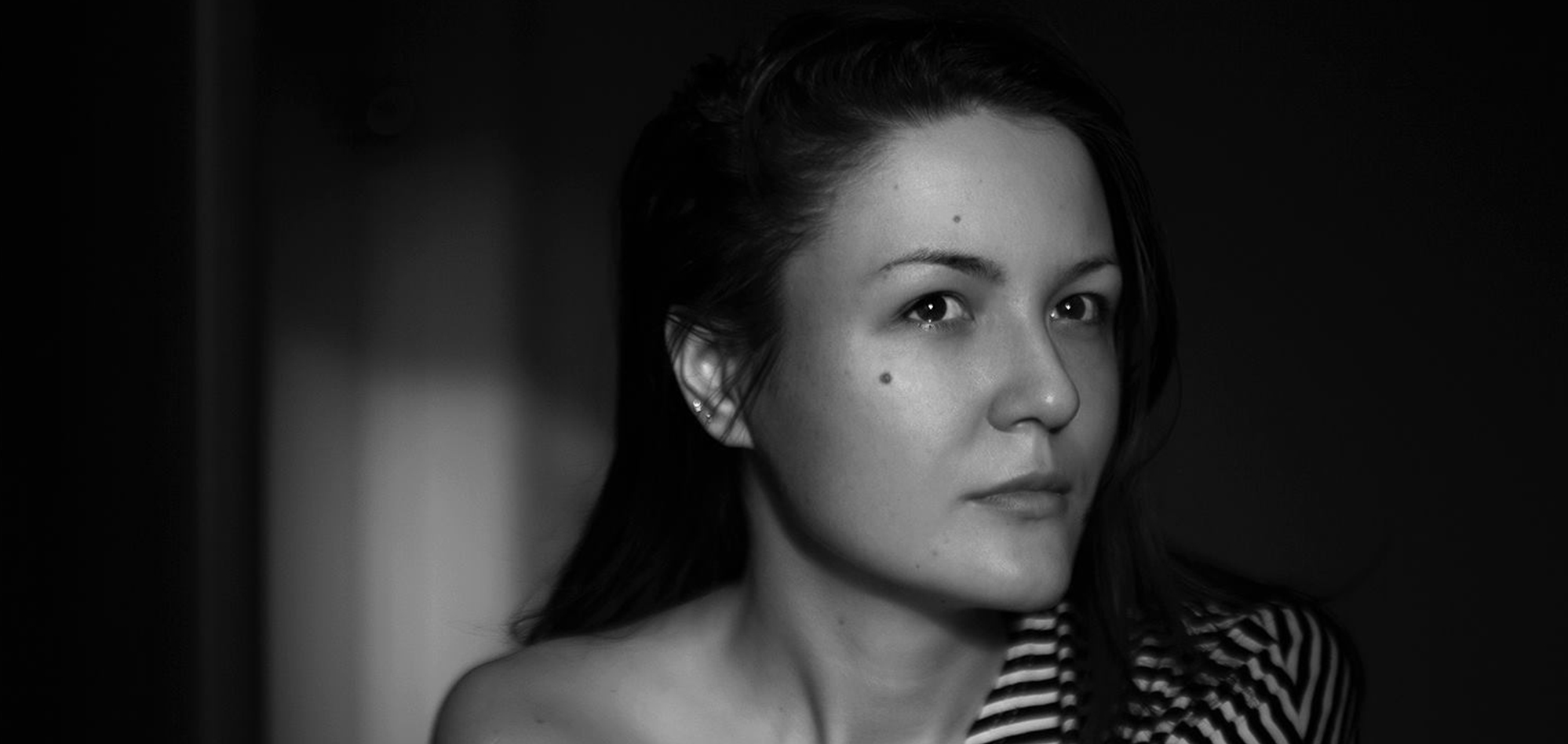Alessa Buiatti has a Degree in Communication Sciences and is a journalist since 2005. She has also taught in High School. She writes for Cinema because it’s her real passion and because she believes that there is a need for a deep change in society. “Time&Days” is her first work as a director; it is also the first episode of a trilogy of short films that she wrote in order to gently investigate and give an answer to the theme of love, violence and freedom. Previously, she wrote “Soli insieme,” a short film on the theme of Hikikomori, and “L’aurora,” a short film on violence against women, winner of a call from the Equal Opportunities Department.
Within the framework of this year’s 16 DAYS 16 FILMS initiative created by Modern Films and the Kering Foundation, a short film competition that platforms female filmmakers and their films, which explore, emote, and educate on forms of violence against women, Tara Karajica talks to Alessia Buiatti about her short film, “Time&Days,” as well as her thoughts on the short form, women in film today and what she is up to next.
How did you get into filmmaking and what inspires you to make films?
Alessia Buiatti: I got into filmmaking as I felt the need to talk about certain topics like freedom, violence and love. I wanted to see with my own eyes the stories that live around me and grow in my mind. Whenever I go to a place which has something magical or frightening, when I meet someone or when I experience a very intense situation, even for a few moments, I immediately feel the need to get these into a subject and complete them through the images in a film. The feelings and relationships between people stimulate the most my interest.
Can you talk about your short film Time&Days?
A.B.: Time&Days is a very sweet and sad love story that develops through a trilogy of short films. It is sweet because the feelings Caterina and Daniele have for each therapy are pure and authentic; sad because their lives are marked since childhood by abandonment, abuse and fear. The film is therefore the story of how Cat and Daniele have to struggle to overcome this painful condition that has characterized their childhood, and how, alongside awareness and the need to rebel against violence, it is also necessary to remain pure, sweet and capable of nurturing an authentic, unpretentious love based on respect and freedom. In the trilogy, we observe the protagonists at eleven, thirty and finally forty years old, a parable on violence and love that I hope will contribute to better understand these issues.
How do you see the short form today?
A.B.: In Italy, short films do not have a lot of space to broadcast either on TV or in the cinemas. They can be screened at festivals, but with the pandemic this is much harder. I believe that they are very powerful; their short length is a gift that can clearly launch a social message in a very democratic way: a short film can be seen in schools, during a training course or screened at a conference and thus serve as an encouragement to debate, especially when the topic addressed is very explicit. I therefore believe this form is very useful for social purposes. I will continue to make shorts for this reason, along with the feature films that I would like to shoot to better follow the characters and their evolution.
What is your opinion on the situation of women in film today?
A.B.: As in all sectors, women are trying to have their say in Cinema as well, establishing themselves as authors, directors of photography, directors… It is difficult because all the managerial positions in our society are still occupied by men. Men are commonly credited with certain skills: for example, they are believed to know how to manage a set well, to have a vision, to be authoritarian when needed. We are only used, I believe, to this approach. We just need to start doing things differently as women in a directing position, and not to get knocked down by closed doors in the face. Try again, always try. Women are capable of being both determined and gentle. Steady with flexibility. Rational with an open heart. Women’s strength is not as destructive as fire, but as fertile and ineluctable as water.
Who is your favorite female filmmaker and what is your favorite film by a female filmmaker?
A.B.: It’s an easy question. Without any doubt, Sofia Coppola is my favorite director and Lost in Translation is the film that I feel closest to my sensibility. I like everything in this story: the fact that it tells something so small and apparently insignificant – almost “nothing” happens in the film –, the state of suspension in the air, the characters, the settings and the final message of the film, the music and photography, not to mention the excellent acting performances. Sofia Coppola has great sensibility and has portrayed her characters in a subtle and delicate way, which contributes to their nuances. This is very relevant for me as a filmmaker.
What are your next projects?
A.B.: I would like to complete the Time&Days trilogy, shooting the second and third episode in a short film formula or shooting the whole film from beginning to end. That is why I would love to have an international producer because I think it is a story with universal appeal. I am also very involved in a documentary about a Motocross freestyle rider that I know personally; he has a strong tenderness I like very much. I’m also involved in other short films that deal with loss from a very feminine point of view.
This interview was conducted within the framework of the 2020 16 DAYS 16 FILMS initiative created by the Kering Foundation and Modern Films.










